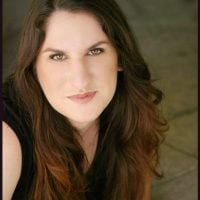View this post on Instagram
The average child hears the word “no” about 40,000 times by the age of five.
How about the word “yes”? Around 5,000.
So, everyone reading this heard “no” eight times more than they heard “yes” before starting first grade. Whoa.
Is it any wonder we have a problem trusting ourselves and seeing life from a “glass half-full” approach?
Now, you may be thinking, “Yeah, but some of those ‘no’s’ were for our own good,” and you would be correct. However, a child can’t distinguish between a “no” that is for their protection and a “no” that is, well, just a “no” because of a parent’s limitations or personal conditioning.
One of the first things we learn as kids is shame. Why? Because most children will eventually have to exist in a society with other people. Learning what is appropriate and what isn’t starts almost immediately, killing our gut instinct and setting the stage for making ourselves small and quiet so we can blend in and be good citizens.
Most of us won’t remember hearing “no” 40,000 times, but our brain does. Our brain is amazing. It’s built to learn, evolve, and grow through our experiences (called experience-dependent neuroplasticity).
What do you think happens to a child’s developing brain when they hear “no” that many times?
It changes.
Children’s brain waves are slower than adults’. Everything that a child learns and experiences from ages zero to seven years old is the baseline for every single thing they will do, believe, desire, and trust as they get older.
Have you ever noticed how quickly children absorb and learn information? That’s because of their slower brain waves.
As adults, those 40,000 “no’s” can start to compound into feelings of unworthiness, shame, mistrust of others, and a feeling of isolation. We’ve learned to hate the word “no” because of its impact on our development, imagination, and sense of self.
No wonder it’s so challenging for us to use “no” when it can serve us. We have a complicated relationship with it. Many times, “no” kept us from self-expression, self-trust, and self-exploration. Understandably, we feel a bit yucky about it.
How can we help ourselves going forward? How can we form a better relationship with “no” and begin afresh?
We can work on self-permission.
I don’t know about you, but all those “no’s” had a specific impact on me: they created a belief that I needed permission from some authority figure before doing anything.
Who is an authority figure? Everyone. Because, inside, we are still those innocent children. We are still seeking approval, affection, and love. And we are terrified that someone will say, “No, you are not worthy of that.”
For me, an authority figure was anyone I deemed to know more than I did (even if they didn’t). It could be an editor, a teacher, a friend’s parent, a guy I liked, even a random stranger! I was always seeking outside permission and approval, even with people I didn’t like or respect much.
Those “no’s” taught me that I wasn’t my own keeper. They taught me that I couldn’t trust my inner wisdom and my gut. They taught me to shrivel, shrink, and shut my mouth.
Not anymore.
Self-permission has to be one of the most powerful forces there is. To allow yourself all you desire and not apologize for it? That’s someone I want to be, emulate, and grow into.
No one knows what’s best for you but you. Period.
I’ve had problems saying “no” in the past, and now, I have a better understanding of why. In the past, “no” was used to annihilate our power and curiosity. Now, we can permit ourselves to be powerful, be curious, and be who we truly are.
The only “no” that can truly harm you now is the one you say to yourself.
 Share on bsky
Share on bsky

Read 12 comments and reply